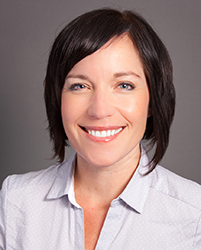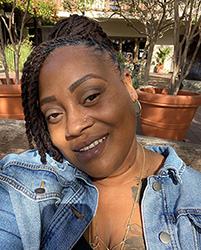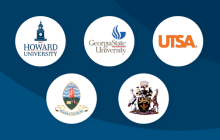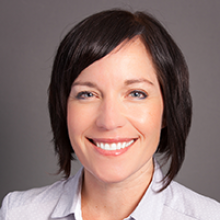The Role of Mentoring in Building the Future of Research
Kam Williams and Dominique Bradley have the rapport of two friends catching up, but their relationship goes even deeper than friendship. Dominique Bradley is a senior researcher at AIR and qualitative methods expert, specializing in education research. Kam Williams recently received a Ph.D. in sociology from Georgia State University. They met when Dominique co-taught an online workshop on Cultural and Linguistic Competence (CLC) in Survey Design and Methods.
This workshop was offered as part of the AIR Equity Initiative's Pipeline Partnership Program, which aims to strengthen the diversity of the research field by supporting graduate students who reflect the racial, cultural, and socioeconomic diversity of the communities they serve. As part of the P3 program, some participants are assigned official mentors, but sometimes mentoring relationships also develop organically, like Kam and Dominique’s. In this conversation, Kam and Dominique discuss how their relationship began, how mentorship can fill in educational gaps, and the value of these relationships to both participants.

Q: Dominique, what were you and your co-instructors hoping to achieve with the CLC surveys method workshop?
Dominique: The curriculum itself is designed to cover the basics around designing surveys, testing, survey questions, sampling frameworks, doing cognitive interviews, and a little bit of mixed methods in surveys. Our goal was to provide graduate students in the pipeline program with the opportunity to discover more survey methods, and, more generally, to support their research. The class was co-taught by four AIR researchers, and we all had very different areas of expertise, which I believe enriched the class. We wanted to make sure that the class would be as useful as possible for our students, that it would serve all their interests and skill levels, so we asked about their backgrounds before we began to get a sense of their needs.
I love teaching, and I really enjoyed being able to co-teach with colleagues. But the best part is office hours, where I got to know students. That’s where I met Kam.

Q: Kam, what brought you to Dominique’s office hours?
Kam: We students had the opportunity to share our work with the class facilitators in live time, using digital whiteboard presentations. Dom reviewed mine and provided really helpful feedback, and encouraged me to visit her at office hours if I wanted more guidance—so I did.
Dominique: We wanted to create interactive opportunities for students, so that they’d leave the class with concrete ideas about how to define their research questions. When I reached Kam’s presentation, her topic hit a nerve with me. I didn’t know anything about it, but I wanted to learn more.
Kam: I was at the beginning stages of my work then. My dissertation examines the formation and re-formation of black gangs throughout history, spanning 70 years. I’m from Compton, California, so I’ve had a unique connection to gangs my whole life; I could tell that society viewed them very differently than I did, and I wanted to dig into that. Dom helped me figure out how best to approach the question—a survey, or mixed methods, or quantitative research. From there, we brainstormed to form a baseline research question, which eventually grew into my dissertation. But more than that, she helped me start thinking about data in a different way.
I had taken one semester of qualitative research, but it hadn’t prepared me enough for the work that I really wanted to do. Dom, and a few other mentors, helped fill that gap. We soon realized that we had a lot in common, both personally and in our research interests: We both have children around the same age, we both have strong personal ties to California, we both love the “Fast and Furious” movies. Cementing that personal bond also really strengthened our relationship.
Q: Dominique, how has your experience working with Kam informed your own work?
Dominique: I don't often get the opportunity to really engage in someone else's research journey. But with Kam, I got to follow the process for over two years, from formulating research questions through completion. Every Ph.D. is a lot of work, but Kam taught herself new skills as she was doing it, which was inspiring. And now, after all that work, she has a fascinating final product and is establishing herself as an important voice in the field.
Working with her shaped how I lead internal trainings on qualitative research. I asked myself how our researchers could be pushed to ground themselves in their experiences to inform every stage of research—much the way Kam and I had started to talk about her research journey.
On top of that, the content of Kam’s work itself—these discussions about gangs, racial formation, racialization, and the importance of language—has also informed my work. I’m much more aware of these issues thanks to her, and I’ve been raising them to the forefront of my internal DEI work. Kam has blended her own personal knowledge and experience so masterfully into her dissertation, and it’s made me reimagine how we at AIR make space to talk about our backgrounds, and how our backgrounds might—and actually should—inform our research. AIR’s mission is to make a positive difference in society, and the P3 program does that in a very immediate way. It helps us as an organization improve how we conduct our research, and it also helps cultivate a new generation of scholars of color. I love this opportunity to contribute to the mission, that goes beyond the research itself and directly helps scholars.
Q: Kam, how has your relationship with Dominique has helped shape your growth?
Kam: It gave me confidence. I facilitate Data for Equity work at Evident Change, and help other organizations to do the same. Many organizations that hire me think that they know how to conduct surveys. But I have the confidence to say, “No, I'm the expert. That question that you want to include is not helpful, and will in fact throw off the whole survey.” Dominique, and my other mentors, showed me that I really knew my stuff and have that authority.
I’m very fortunate because I actually had two mentors—one that I was assigned by AIR, Michael Stoll, as well as my relationship with Dom, which developed organically. I never had to rely too heavily on just one person, which can be a burden. In academia, people of color are very underrepresented among Ph.D.s, but they also quickly become prominent mentors, because the students of color all gravitate toward them. That can easily lead to burnout for those faculty members. I think the idea of multiple mentorships is really important.
Q: Kam, what kind of a difference are you eventually hoping to make?
Kam: I want to reshape the way people think about gangs. As a society, when we label people of color as gang members, that follows them throughout their lives and has a direct impact on their quality of life. We continue to see people of color as being criminals, and we haven’t been able to wipe that association. Ultimately, I want to help change that conversation so that we humanize people of color. And that conversation needs to take place in the research world, but also in my community. I want to teach the people I grew up with exactly how the system works against them, and give them the tools to navigate their way out of that.

